Date: 2024-09-02
After a successful three days, from August 29th to the 31st, the 2024 Pacific Neighborhood Consortium (PNC) Annual Conference and Joint Meetings, hosted at Korea University in South Korea, came to a close. The event gathered more than 180 experts and scholars from 13 countries, including Taiwan, South Korea, Japan, the United States, and Germany. The conference focused on the theme “Green, Flow, and Signal: Reconnecting Fragmented Communities in the Age of Digital Transformation.” Participants explored strategic models and community connections in response to the digital transformation.
Dr. Chin-Shing Huang, Chair of the PNC and Vice President of Academia Sinica, emphasized the effort that the PNC put in to establishing communication among outstanding researchers in information technology, humanities, and social sciences from around the world since its establishment 31 years ago by organizing annual conferences in the Pacific Rim region. This year, Dr. Chin-Shing Huang stressed the importance of global signals in the face of challenges such as the climate crisis and the revolutionary changes brought about by the rapid development of artificial intelligence. He called on everyone to utilize technology and community strength to seize opportunities during this critical moment of digital transformation.
Record-high Submissions in Paper and Posters, Fruitful Exchange in Book Donations
The PNC conference reported a record number of academic paper and poster submissions this year. Over the three days, 26 sessions were held featuring the presentation of 99 research papers, along with the exhibition of 22 academic posters showcasing cutting-edge research by international groups.
AI was undoubtedly the focal point of this year’s conference. Dr. Tzong-Han Tsai, Research Fellow at the Research Center for Humanities and Social Sciences, Academia Sinica, shared the development process of TAIDE, the first large language model (LLM) tailored to Taiwan’s language and culture. Dr. Lun-Wei Ku, Research Fellow at the Institute of Information Science, Academia Sinica, introduced the Immerse Art Vision Innovation System. Nicknamed “Omiyage,” the interactive system developed using a large language model offers an immersive art experience that can be applied in interactive museum tours. In other sessions, the relation between AI and social values was a major talking point, in addition to such topics as the interdisciplinary AI application on Buddhist literature, the publishing industry, education, and healthcare.
Academia Sinica showcased nearly 100 recent publications. In addition, an AI interactive display was introduced to help participants explore the Digital Humanities Research Project and pick out topics of interest. At the closing ceremony, Dr. Hsi-Yuan Chen, CEO of the PNC and Director of the Academia Sinica Center for Digital Cultures (ASCDC), donated books on behalf of Academia Sinica to the Korea University Library. He hopes the donation not only promotes academic research but also further deepens friendly exchanges between the two countries.
Scholars from Taiwan and South Korea Sparked Enthusiasm on Green Energy, Korean Wave, and Metaverse
Dr. Dong-One Kim, President of Korea University, noted that this was the first time since 2006 that the PNC members had come to Seoul, South Korea, for its annual conference. He expressed hope that the conference, guided by the vision of “freedom, justice, and truth,” would serve as an important platform for the exchange of knowledge and ideas across the Pacific Rim.
The conference featured three keynote speeches. On the first day, Dr. Sang-Hyup Kim, Co-Chairperson of the Presidential Committee on Carbon Neutrality and Green Growth in South Korea, delivered a talk entitled “Climate Crisis and the Green Big Bang.” Professor Kim emphasized the need to raise public awareness through digital technology to achieve the 2050 carbon neutrality goal, advocating for energy transition and promoting sustainable development in South Korea’s green economy through technological development and investment.
On the second day, the keynote speech was delivered by Dr. Kwang-Shik Choe, former Minister of Culture, Sports, and Tourism in South Korea, and now Professor Emeritus of Korean History at Korea University. His talk, entitled “The Origin and Flow of Hallyu,” explored the origins and development of the Korean Wave (i.e., Hallyu). He explained that the term “Hallyu” originated from Taiwanese newspapers in 1997 when it depicted the then-emerging trend. He discussed how Korean idols, music, dramas, games, and comics expanded from Asia to the West, sweeping across the globe through digital platforms like social networking services and YouTube.
On the final day, the keynote speech was delivered by Yi-Ping Hung, Professor at the Department of Computer Science and Information Engineering, National Taiwan University, entitled “Toward the Metaverse in Post-Human Era.” His speech focused on the key idea and technologies of the Metaverse and discussed how VR, AR and Human-Computer Interaction are applied in immersive exhibitions and surgery simulation.
This year, the PNC continued its collaboration with the Electronic Cultural Atlas Initiative (ECAI) in the United States and organized seven workshops on various topics.
The PNC 2024 conference was organized by the Asiatic Research Institute of Korea University and the Pacific Neighborhood Consortium, with co-hosts from Academia Sinica, the Electronic Cultural Atlas Initiative in the United States, and the Ministry of Education, Taiwan (ROC). Next year’s annual conference will be hosted in Vietnam.
PNC 2024 Annual Conference & Joint Meetings (PNC 2024)
Conference Website: https://sites.google.com/view/pnc2024
Conference Program: https:/sites.google.com/view/pnc2024/detailed-program
-
Ms. Chung-Chun Chang, Academia Sinica Center for Digital Cultures
(02) 2652-1885#303,chunchang@gate.sinica.edu.tw
-
Ms. Tsuey-Yin Piong, Media & Public Affairs, Secretariat, Academia Sinica
(02) 2789-8821,fangzi@as.edu.tw
-
Ms. Steffi Tung Lin, Media & Public Affairs, Secretariat, Academia Sinica
(02) 2789-8820,tunglin@as.edu.tw
-
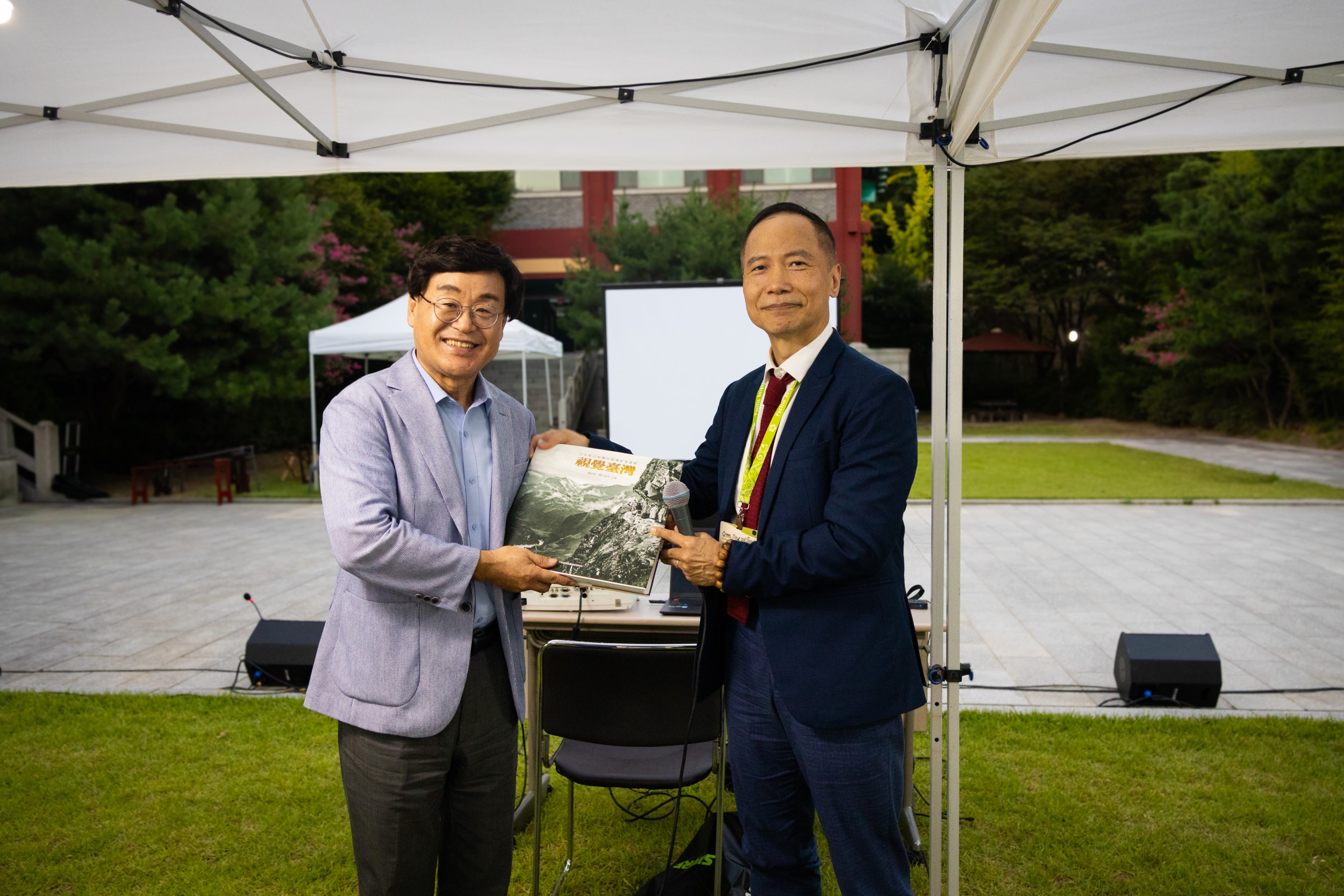 Hsi-Yuan Chen (right), CEO of the PNC and Director of the Academia Sinica Center for Digital Cultures (ASCDC), presented a complete collection of conference books on behalf of Academia Sinica to In-Jin Yoon (left), Director of the Korea University Library. Photo credit: Academia Sinica.
Hsi-Yuan Chen (right), CEO of the PNC and Director of the Academia Sinica Center for Digital Cultures (ASCDC), presented a complete collection of conference books on behalf of Academia Sinica to In-Jin Yoon (left), Director of the Korea University Library. Photo credit: Academia Sinica.
-
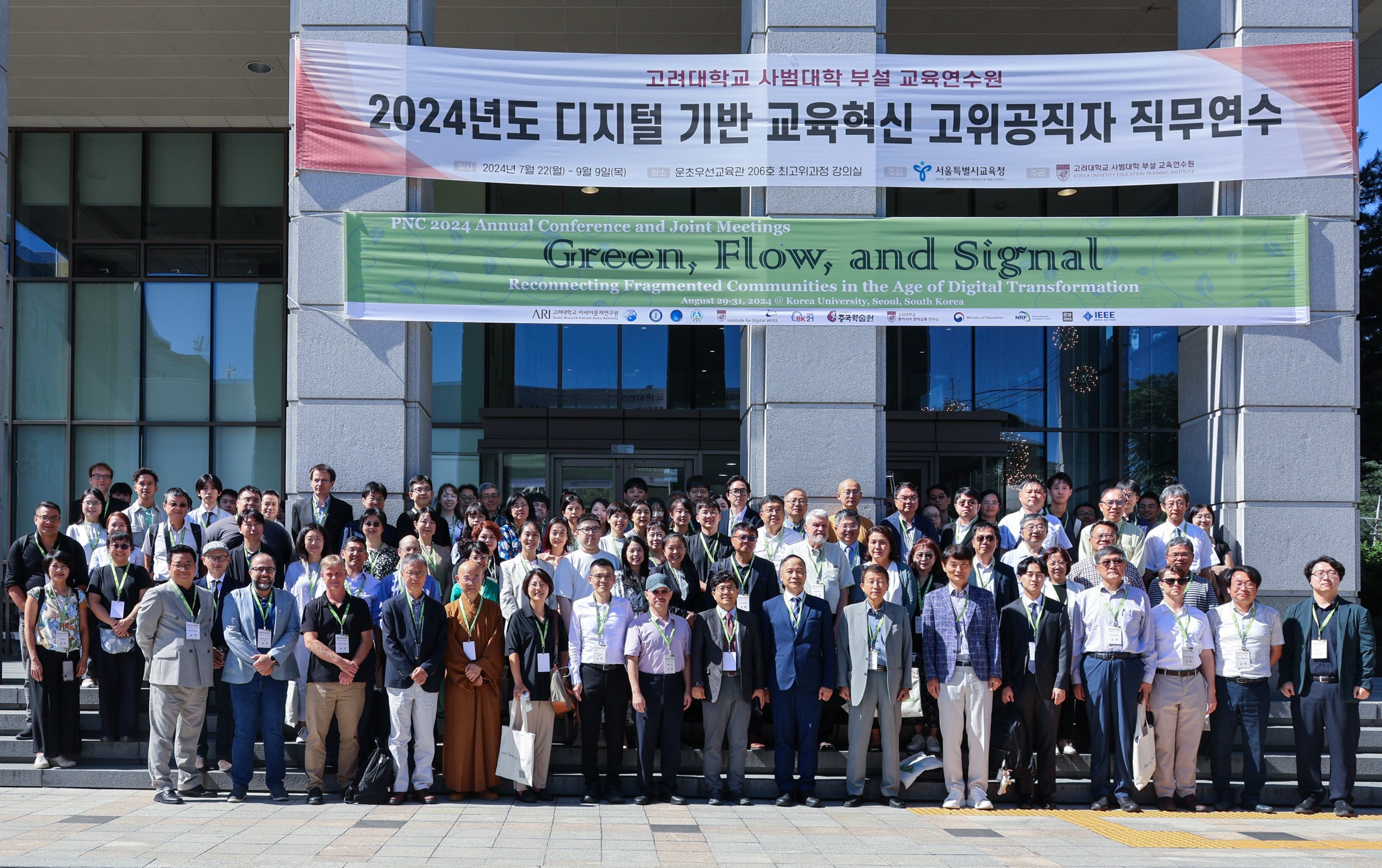 Group photo of participants of the Pacific Neighborhood Consortium 2024 Annual Conference and Joint Meetings (PNC 2024). Photo credit: Academia Sinica.
Group photo of participants of the Pacific Neighborhood Consortium 2024 Annual Conference and Joint Meetings (PNC 2024). Photo credit: Academia Sinica.
-
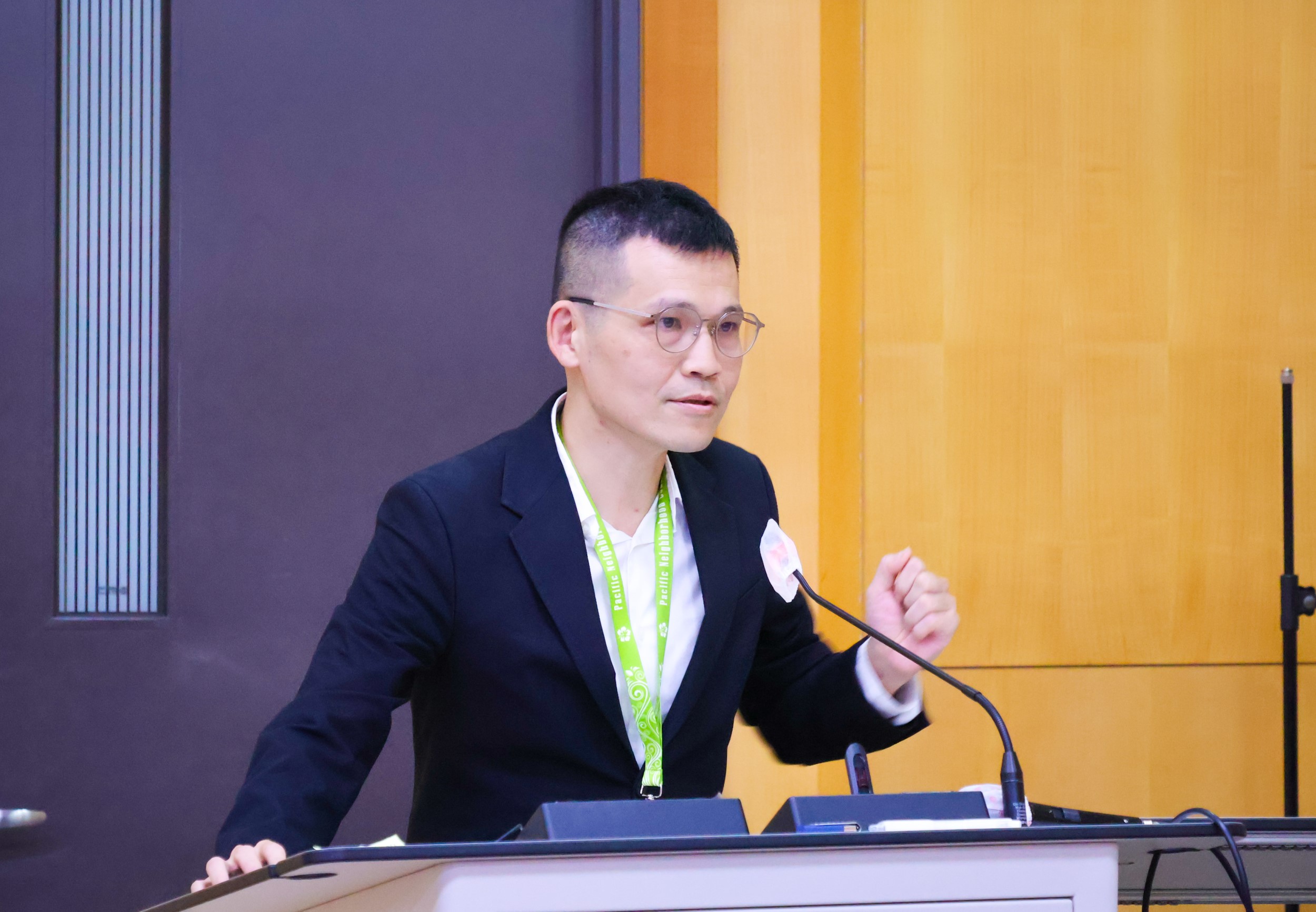 Tzong-Han Tsai, Research Fellow at the Research Center for Humanities and Social Sciences, Academia Sinica, introduced the development process of TAIDE, the first large language model (LLM) for Traditional Chinese developed in Taiwan. Photo credit: Academia Sinica.
Tzong-Han Tsai, Research Fellow at the Research Center for Humanities and Social Sciences, Academia Sinica, introduced the development process of TAIDE, the first large language model (LLM) for Traditional Chinese developed in Taiwan. Photo credit: Academia Sinica.
-
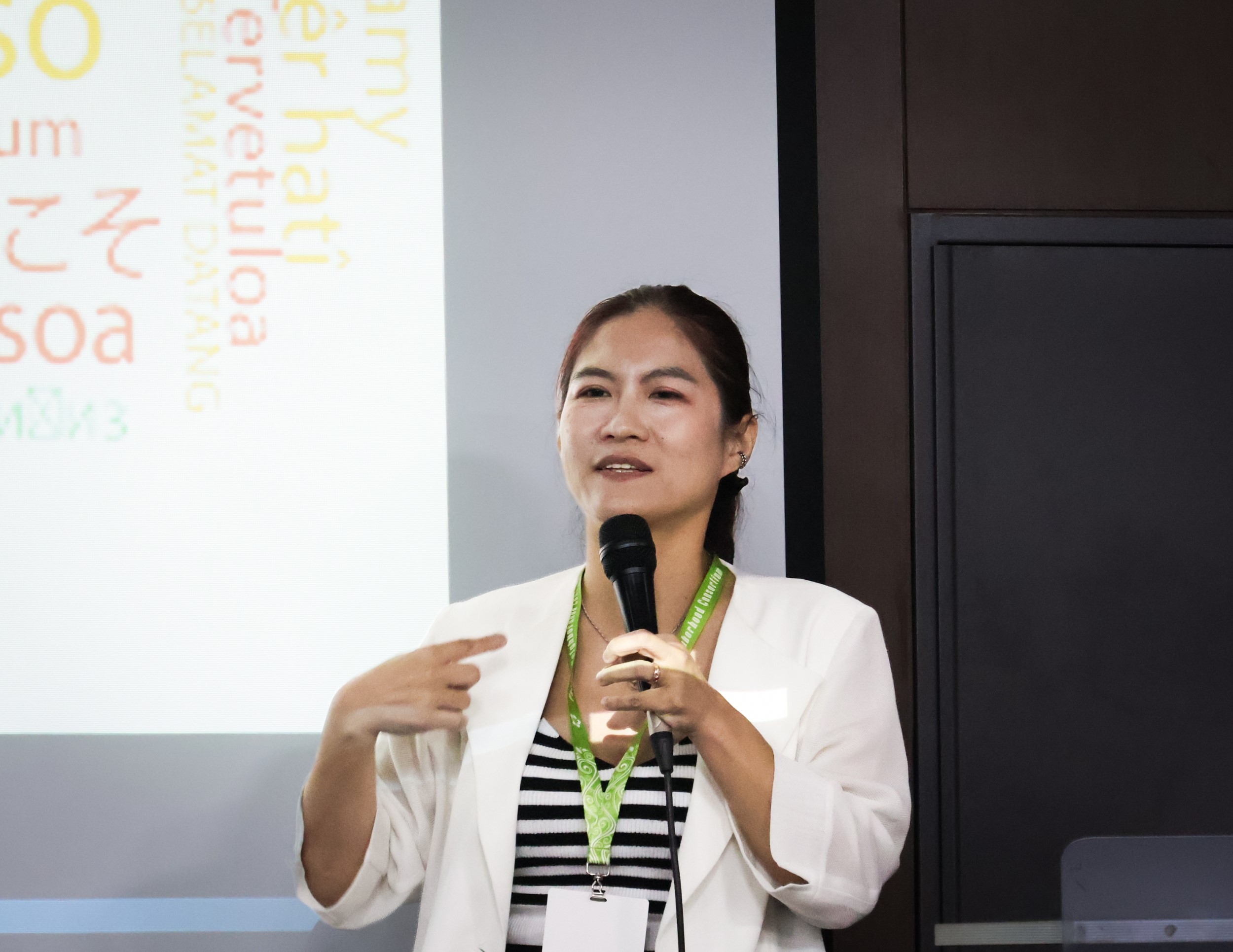 Lun-Wei Ku, Research Fellow at the Institute of Information Science, Academia Sinica, shared how large language model (LLM) technology can enhance interactive learning in museums. Photo credit: Academia Sinica.
Lun-Wei Ku, Research Fellow at the Institute of Information Science, Academia Sinica, shared how large language model (LLM) technology can enhance interactive learning in museums. Photo credit: Academia Sinica.
-
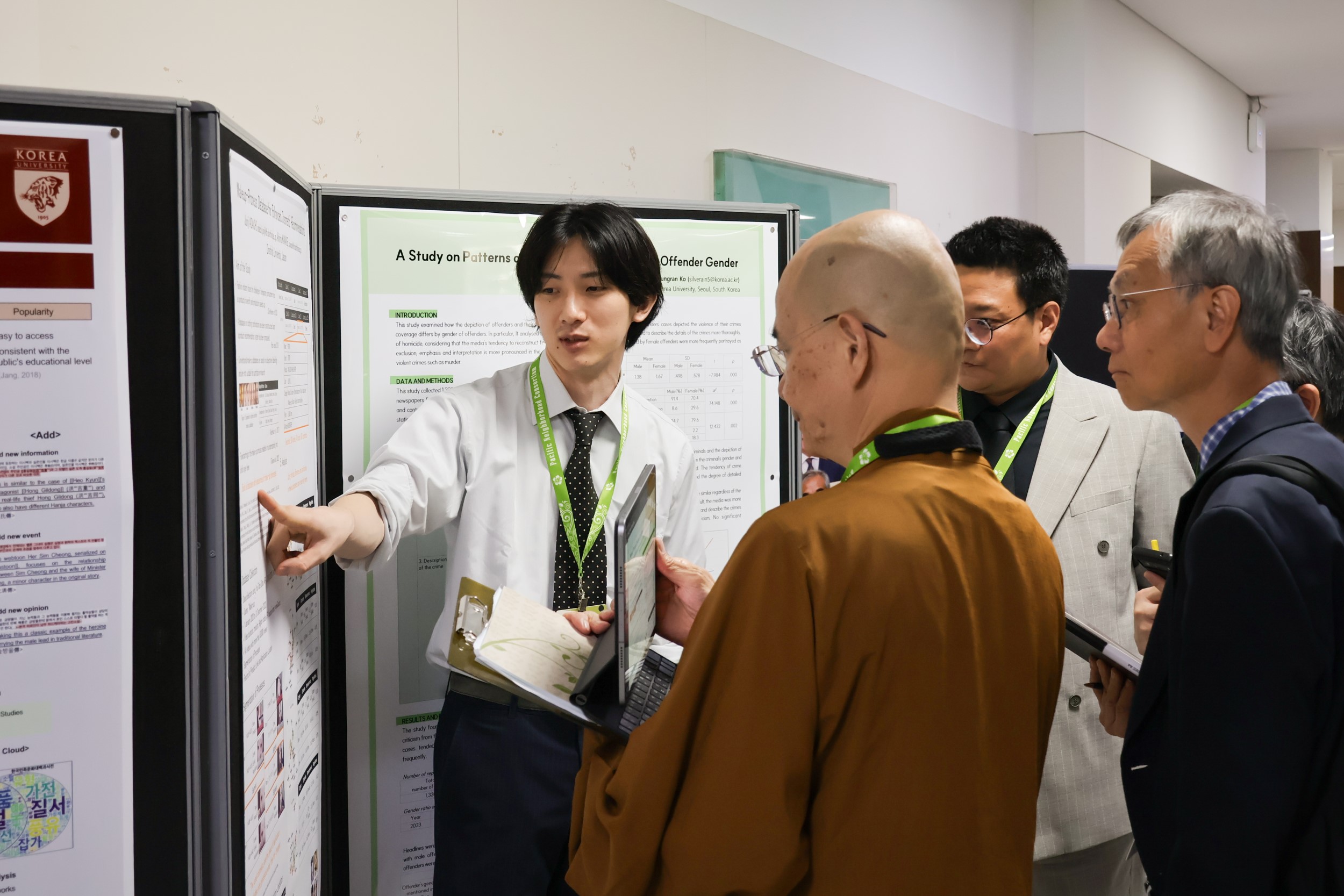 Twenty-two academic posters were exhibited, showcasing emerging trends in the interdisciplinary application of information technology. Photo credit: Academia Sinica.
Twenty-two academic posters were exhibited, showcasing emerging trends in the interdisciplinary application of information technology. Photo credit: Academia Sinica.
-
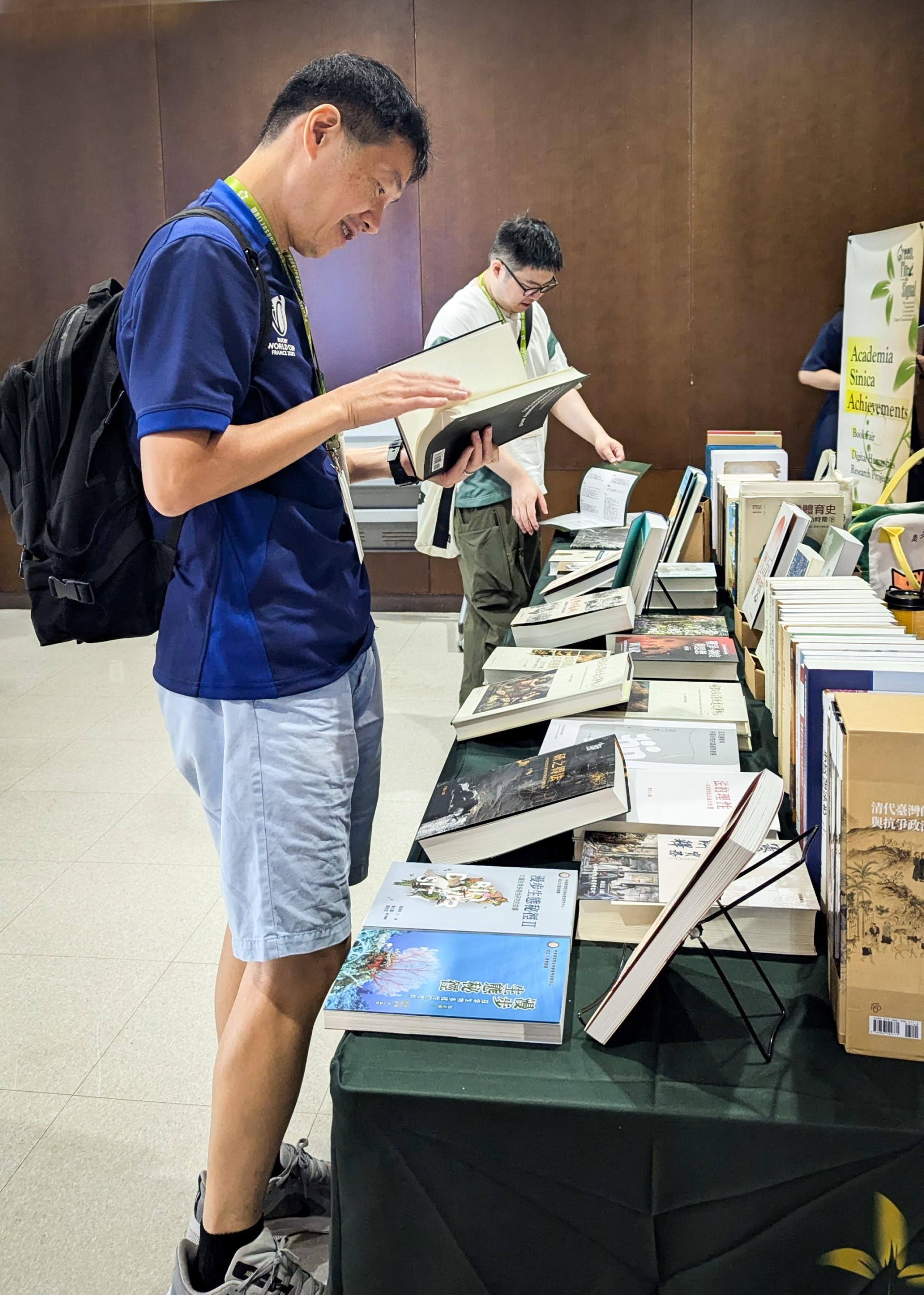 Academia Sinica showcased nearly a hundred recently published books, attracting the attention of participants. Photo credit: Academia Sinica.
Academia Sinica showcased nearly a hundred recently published books, attracting the attention of participants. Photo credit: Academia Sinica.
-
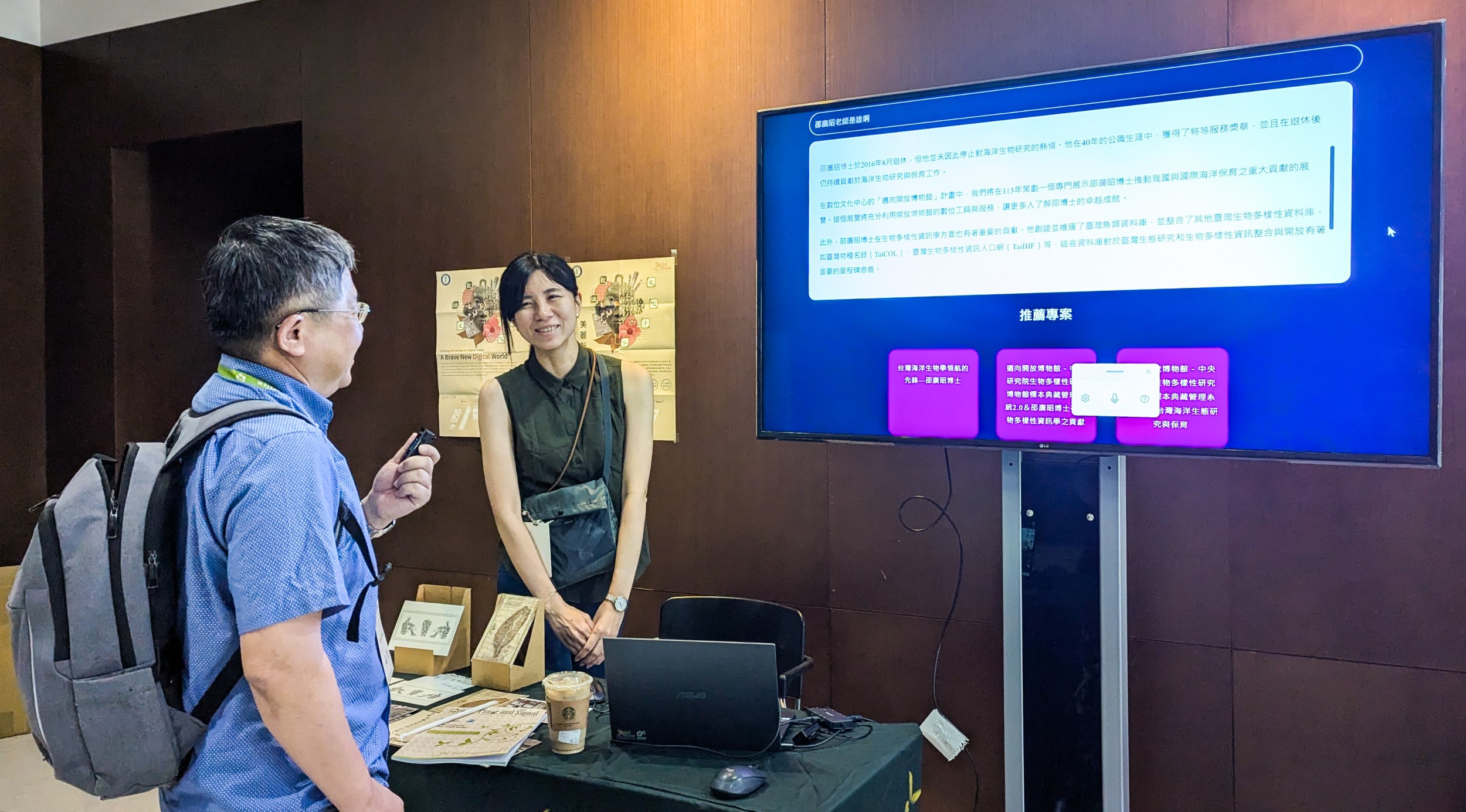 Participants interacted with the AI display to explore the achievements of the Digital Humanities Research Project. Photo credit: Academia Sinica.
Participants interacted with the AI display to explore the achievements of the Digital Humanities Research Project. Photo credit: Academia Sinica.
-
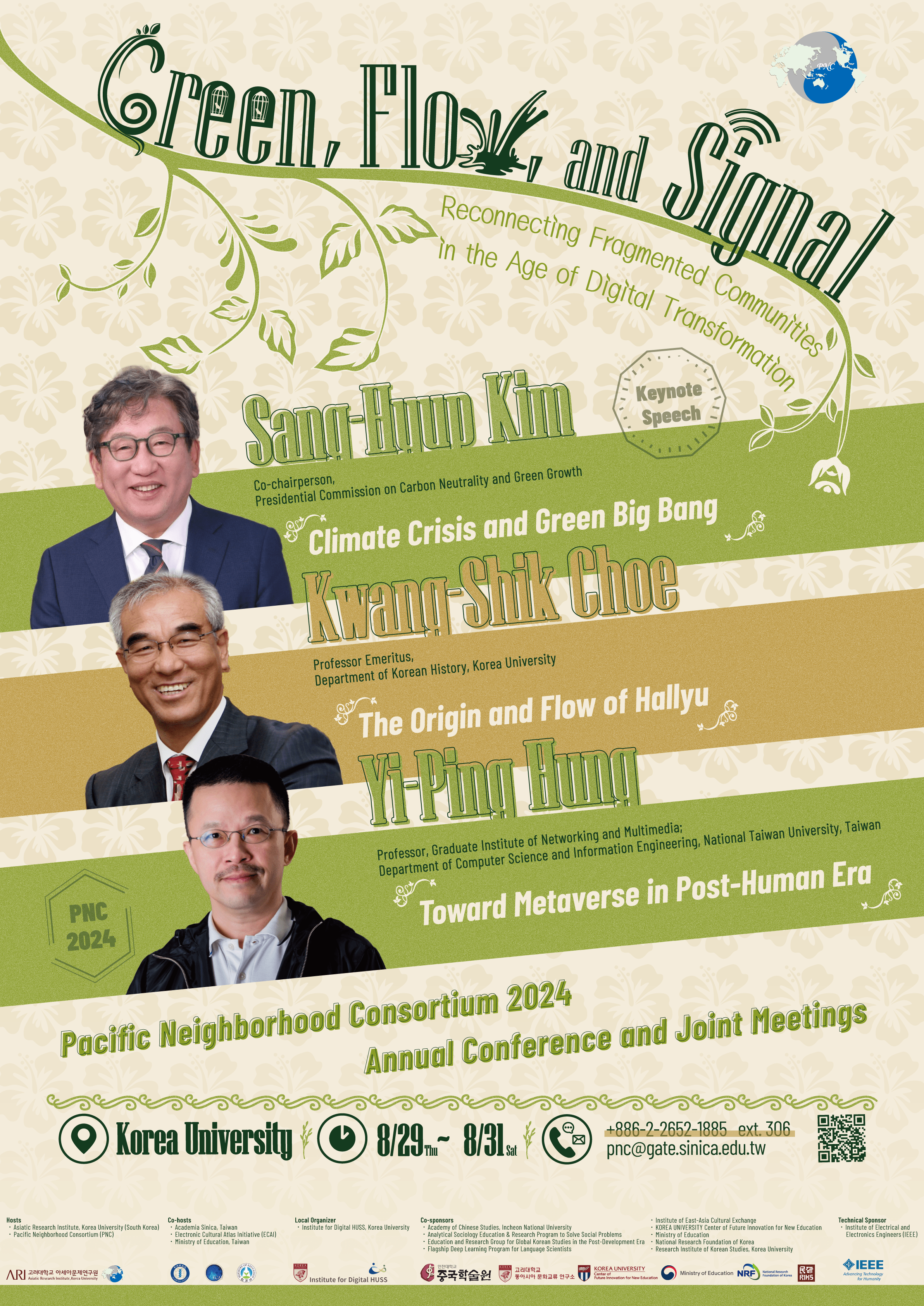 Poster of Pacific Neighborhood Consortium 2024 Annual Conference and Joint Meetings. Photo credit: Academia Sinica.
Poster of Pacific Neighborhood Consortium 2024 Annual Conference and Joint Meetings. Photo credit: Academia Sinica.









 Home
Home
